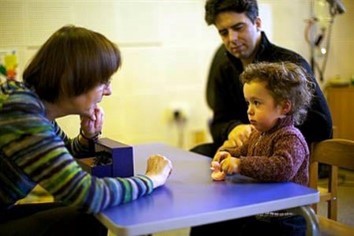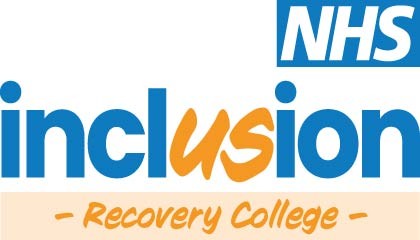On this page…
The service provides autism assessment and intervention for children and young people in South Staffordshire.
The service provides autism assessment and intervention for children and young people in South Staffordshire.
The Children and Young Peoples Autism Service provides assessment in line with National Institute for Health and Care Excellence (NICE) guidance, including diagnosis by a multi-disciplinary team (MDT). The service will assess children and young people up to their 19th birthday.
The CYP Autism Service provides intervention support to children and young people and their families with a diagnosis of autism, up to the age of 19 in most cases, but up to the age of their 25th birthday if the young person has an EHCP (education health and care plan). The autism service provides individualised intervention and support. We aim to equip young people and their families with strategies to support them to live fulfilled lives.
All our intervention will be evidenced based.
The service works closely with other services which deliver care and support to children and young people including services provided by MPFT such as Community Paediatrics, the Children’s Learning Disability team, CAMHS, Community Speech and Language and children's Occupational Therapy, and services provided by Staffordshire County Council, such as Educational Psychology and Autism Inclusion Team.
Please note: Referrals into the service can only be made by a professional who has met with the child and family and understands the needs of the child. If the child is in an educational setting we require input from the school as part of the referral.
All referrals into the Children and Young People's Autism Service are triaged by our practitioners.
To refer a child or young person up to the age of 18 to the service for assessment of autism please complete our referral form (above) and return to autism.
Once the referral has been triaged by our practitioners, it will either be accepted or declined.
If a referral is accepted, the child/young person will be added to the assessment pathway and parents or guardians will be contacted once appointments are available.
If a referral is declined, a letter will be sent to the referrer, and information may be provided for other services that may be more appropriate.
Referral Criteria – Autism Intervention Team
Referrals for intervention can be completed by professionals or parents by completing the below form. Please ensure all questions on this form are answered with as much information as you can provide.

Kellee joined the team in May 2024 and has a background of leadership and operational management both external and internal to the NHS. Kellee has been in the NHS since March 2020 and has worked across various trusts, the most recent being Community Paediatrics at The Royal Wolverhampton. Within this role, Kellee worked with various services, local authorities and service users to develop and improve services offered to children and young people. Kellee is looking forward to using her previous experience to work with the team and improve autism services for children, young people, and their families across Staffordshire.

Vicki completed a PhD in Psychology before undertaking Clinical Psychology doctorate training and qualifying in 2005. Vicki has worked with children and families across NHS, local authority and independent sectors and has specialist interest in working with individuals with Autism, Learning Disabilities, Looked after Children and those with attachment difficulties or developmental trauma. Vicki has worked in children and young people’s autism services since 2016 and within the service she specialises in the assessment and diagnosis of autism.

After completing his Clinical Psychology Doctorate, Jay has been predominantly employed in child mental health services. Jay has previously worked in CAMHS, youth offending services, ADHD, and autism services. Jay works in a cognitive and systemic manner. He has had years of experience working with complex cases. At MPFT, his work involves assessment, intervention, supervision, and consultancy.

Chrissy has been with the autism team since 2017. She completed her degree in psychology and child development in 2016 and has since also completed her counselling level 4 training. Chrissy brings a wealth of experience to the team including Early Years, Perinatal Mental Health and Residential Care for Looked After Children. Chrissy is passionate about helping children and families to thrive in life by helping them overcome/ manage the challenges they face along the way.

Jivone has experience working with children, adolescents and adults who have mental health difficulties. She has extensive experience working with a range of difficulties such as autism, anxiety, depression, phobias, obsessive compulsive disorder, stress, anger and relational issues.
She conducts autism assessments and provides interventions to families. Jivone likes to work in an integrative way drawing upon various therapeutic models to help young people and families. She likes to be transparent in her work and offers a non-judgemental, confidential space where she likes to build a rapport with her client base.

Steph, a qualified teacher, assessor and trainer has over 25 years’ experience in NHS, education, social care and voluntary sector across the midlands. She is experienced in offering information, advice and guidance to families, professionals and CYP to remove barriers and challenges, empowering them, offering strategies and interventions to enable progress. She has an extensive knowledge, understanding and passion for empowering individuals with an ASC, managing behaviours that challenge, SEND, development and the education pathway.

A paediatric nurse for over 20 years, Tina trained at Great Ormond Street Hospital before qualifying and joining Birmingham Children's Hospital's Renal and Urology team as a staff nurse. Tina formed part of a specialist nursing team that provided highly technical treatment, education, and support to children and their families who were living with chronic and end stage renal failure. In 2018 Tina took up a role as a Roald Dahl clinical nurse specialist within the rare disease team at Birmingham Children's hospital. Tina was responsible for supporting children and families, with complex needs, helping them to co-ordinate their care, providing practical, and emotional support, one of only a few specialist nurses in this area, based in the UK. Tina is passionate about holistically caring for children, young people and their families, and ensuring they access the support they need to live happy, healthy lives.

Janice qualified as an Occupational Therapist (OT) in 1982 and has worked in a number of OT roles, including with children and young adults. In her role, Janice will carry out full occupational therapy assessments, which will also include understanding the child’s sensory processing needs and the impact on their daily life. From this, goals will be developed alongside recommendations to improve and support their home and school life, as well as within their community.

Vicky qualified in 2009 in Birmingham and is passionate about promoting and improving the lives of children and young people with communication problems. She has extensive experience working within the NHS, education and independent sectors with young people with neurodevelopmental conditions, learning and physical disabilities as well as social emotional and mental health issues. Vicky joined the team in September 2022 and is excited to be working to support and develop local NHS services.

Oliver joined the Autism team in Dec 2022 having previously worked for 20 years at a Children and Adolescent Mental health hospital. Oliver has a wealth of experience working with young people with mental health diagnosis, supporting young people to try and be the best version of themselves they can and offering fun and interactive ways to learn how to manage in this strange and often scary world.

Emma joined the CYP Autism Service in August 2025 and has extensive experience supporting young people in their homes. Emma is passionate about Speech and Language Therapy, with a focus on ensuring young people feel supported and empowered to use their voice in their environments. Emma is dedicated to helping young people be heard, promoting emotional well-being and supporting their development.

Abbey is currently assisting the admin team with general enquiries and administration tasks. Abbey has over seven years’ experience of working within the admin field.

Hayley recently joined the CYP Autism Service Team in July 2025, having relocated to Stafford. She works three days a week as the Medical Secretary to our Consultant Psychiatrist. Hayley has over 38 years’ experience as a Medical Secretary in the NHS, and most recently worked in Paediatrics for 18 years. She is looking forward to working with the team.

Jayne is part of a team of administrator’s who help with general enquiries from families and other services. She is also heavily involved in the day to day tasks such as,, booking appointments, updating clinical systems and sending out reports and letter’s. Jayne joined the service in 2022 and is enjoying being part of a very caring and professional service.

Liz joined the Autism team in January 2021 and enjoys the fast pace of working with the admin team and supporting the clinicians.

Karen has worked in the NHS for over 40 years. Karen joined the Children and Young People Autism Team in 2021 as part of the administration team. Karen enjoys the variety of the work and working with a team from many different backgrounds.

Megan joined MPFT in July 2025 and is part of the administrators' team. Megan has over 10 years of experience in administration both external and internal to the NHS. Megan joined the NHS in 2018 where she developed her skills within administration.

Natashia joined the service in May 2023 as a Team Based Administrator. She provides administrative support to clinicians, professionals and children and young people’s families. Natashia’s previous role was a Medical Receptionist which equipped her for this role as it is an extremely busy service.

Sheila joined the CYP Autism team in May 2023, Sheila has a wealth of experience in administrative work and enjoys the variety of tasks that she manages day to day. Sheila enjoys working with the service and finds assisting clinicians and families very rewarding.
The current situation is generating a lot of anxiety and the Trust is doing all it can to provide support.
MPFT has set up a 24/7 urgent NHS mental health service providing telephone support, advice and triage.
The number to call for people living in South Staffordshire is 0808 196 3002.
In the event of a medical emergency please go straight to A&E.
If you wish to be added to the distribution list for these updates please email communications
The service update is issued monthly - check the Trust’s Facebook page or this service web page for the latest news.
The service consists of a range of professionals including psychologists and psychology assistants, speech and language therapists, nurses, occupational therapists, psychiatrists. You can meet the team on the Children and Young People’s Autism Service web page via the MPFT website.
The service has an administrative hub at:
Appointments with the service will be at a range of local community venues including:
We also use other local bases and venues, depending on where referrals are from.
Before the assessment, with your permission, we will seek additional information about your child’s current strengths and difficulties at nursery, school or college. We will collect this information by asking the school’s Special Educational Needs Coordinator (SENCo) or class teacher to fill in a semi structured questionnaire. It is helpful if you can let them know that we are going to contact them to request this information.
Once we have received this information you will be offered an initial appointment; this is usually by telephone or video consultation. This first appointment is with parents/carers and a professional to get a good understanding of your child or young person’s development. We use a structured tool called the ADI-R. This is an in-depth interview and can take up to two hours.
The parent and the specialist will go over the child’s medical history (and earlier assessments made), how they behave in general, key developmental milestones your child has passed, and any speech and language concerns.
The questions explore the child’s behaviour patterns in three key areas. These are the areas most affected by ASD:
Following this assessment, the majority of young people will be offered a face-to-face play-based assessment called ADOS (Autism Diagnostic Observation Schedule), to look at their current profile of strengths and difficulties. The ADOS is a standardised assessment that allows us to look for social and communication behaviours that are typical of autism spectrum conditions. It consists of age-appropriate games, books, imaginary play or activities and conversation with one clinician. At the end of the ADOS, observations are summed in pre-arranged categories. With children over the age of about five, it is better for family members not to be present during the ADOS, as we find the child often looks to the parent for answers to questions. The ADOS can take up to one hour to complete.
Parents/carers can complete a self-referral form by clicking Self-referral form - Children and Young People’s Autism Service - MPFT and email it to cypautismservice
If your child has been assessed prior to October 2019 please send us proof of a full or working diagnosis and this will be reviewed by our multi disciplinary team (MDT) to ensure the diagnosis is NICE & MDT compliant. The service also has a duty worker available to discuss urgent concerns by telephone on 0300 303 0691 (9am-5pm, Monday to Friday) regarding your child.
It is currently taking between 3+ years to complete an autism assessment. This is due to the high number of referrals, staffing challenges and a backlog of young people to be seen. We are continuing to work on ways to significantly reduce this timescale. All families will be contacted for their first appointment via telephone or letter as soon as an appointment becomes available.
As a service we understand your needs are urgent and we aim to address these as soon as possible as part of our intervention pathway.
You can contact the Staffordshire Children's Advice and Support Service (0300 111 8007, 08:30 to 17:00 Monday to Friday, and 0345 604 2886 out of hours)
For urgent mental health crisis out of hours, MPFT do provide a help line on 0808 196 3002
In the event of a medical emergency please go straight to A&E.
The team will be available between 9am-5pm, Monday to Friday (excluding bank holidays).
Parents can also make a Subject Access Request (SAR) more details on how to access your records can be found via Your Rights - MPFT.
Pathological Demand Avoidance (PDA)
As PDA is not a formally recognised diagnostic category in the Diagnostic and Statistical Manual of Mental Disorders (DSM V), our team would not make a formal diagnosis; however if demand avoidance is a key feature of your child’s profile we would make it known in any reports and support you in putting in place suitable management strategies.
For more information please see Pathological Demand Avoidance (PDA) - National Autistic Society.
Sensory processing disorder (SPD)
Sensory processing refers to the way the nervous system receives messages from the senses and turns them into appropriate motor and behavioural responses. ‘Sensory Processing Disorder’, is not a diagnosis that is currently recognised in the Diagnostic and Statistical Manual of Mental Disorders (DSM V), however that is not to say your child may not have sensory processing difficulties. Many children with an autism spectrum condition will have sensory processing difficulties associated with their diagnosis.
More information about sensory difficulties is available via Sensory differences - National Autistic Society.
Dyspraxia
Developmental co-ordination disorder (DCD), also known as dyspraxia, is a condition affecting physical co-ordination. It causes a child to perform less well than expected in daily activities for their age and appear to move clumsily.
Dyspraxia is thought to be caused by the way that the brain processes information, which results in messages not being properly or fully transmitted. It affects the planning of what to do and how to do it, and is associated with problems of perception, language and thought. Dyspraxia sometimes runs in families.
While it is distinct from autism spectrum conditions many parents notice similar symptoms, including sensory processing issues. In some cases, the two conditions can co-occur. As with autism, people with dyspraxia may be over- or under-sensitive to certain sensory stimuli. MPFT has a pathway for dyspraxia in our Community Paediatrics service, including an OT/Physio joint clinic. If the CYP autism team think it appropriate a referral to support to this service will be made.
Attention deficit hyperactivity disorder (ADHD)
ADHD is common in people with autism. If someone has ADHD, they have significant difficulties with things like poor attention, over-activity and impulsiveness. MPFT are currently reviewing the pathway for diagnosis and intervention for children with ADHD. We hope to move towards a more integrated neuro-developmental offer. This is subject to service redesign and further discussions with the CCG. If the CYP autism team think it appropriate a referral can be made to paediatrics or CAMHS depending on criteria. However, we would recommend for children or young people that have received a recent diagnosis, we would recommend gaining a greater understanding of their autism and implementing strategies before considering further assessment for ADHD.
More information is available via Related conditions - a guide for all audiences - National Autistic Society.
Unfortunately MPFT are not commissioned to provide an ARFID service, however we may be able to provide advice through our Eating Disorders or Dietetic service, depending on their needs. Further information about ARFID can be found via the BEAT eating disorders website.
Further information in relation to Paediatric Dietetics service can be found here.
Introduction to autism - support for parents / carers
Sensory Processing Introductory Workshop
Workshop for parents - strategies for autistic children struggling to cope with everyday activities
Supporting children and young people with anxiety
Supporting young people to manage behaviour
Managing Behaviours of Concern












